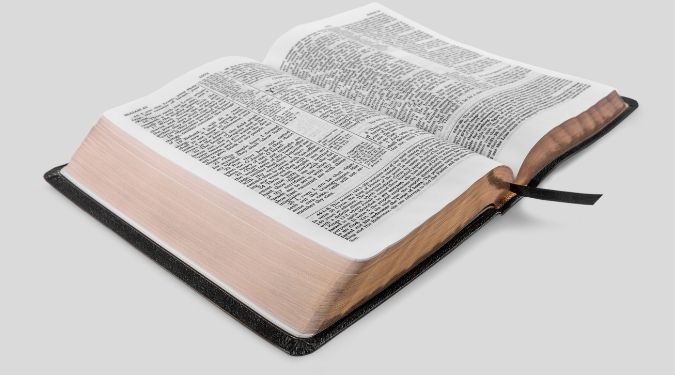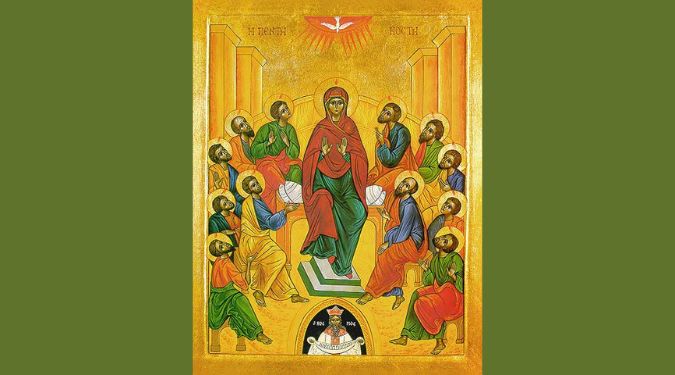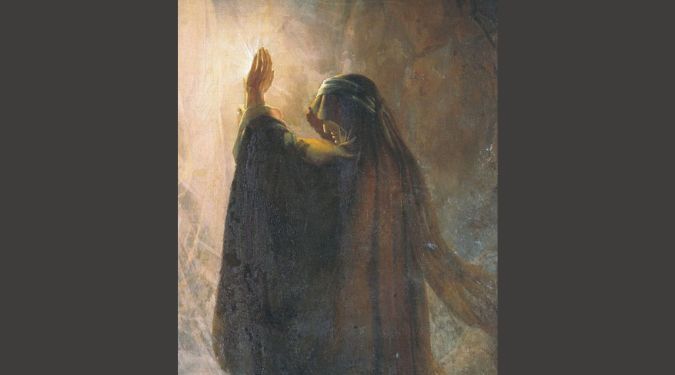Republished from the Catholic Evidence Guild of Guam:
“For a Christian, the Bible should be our sole rule of faith – nothing more, nothing less, and nothing else.” Perhaps you’ve heard a friend, co-worker or family member express this idea, and perhaps you were a bit confused about how to respond. The idea that the Bible should be our only rule of faith, an idea known as sola scriptura, was first proposed by the Protestant reformer Martin Luther in the sixteenth century. Catholics, however, believe that the Gospel was handed down to us in two distinct but closely bound ways: orally, in the form of the preaching of the apostles and their successors, and in writing.
The oral form of apostolic teaching is often called Tradition, while the written form is the Bible. The apostles were given their teaching authority by Jesus, which in turn they passed down to their successors, the bishops. This teaching authority or teaching office is called the Magisterium, a word that comes from the Latin word for “teacher.” It serves to guarantee the integrity of the message that has being pass down to us.
So who is right: Martin Luther and the Protestant churches, or the Catholic Church? Is the Bible the only guide to our faith? Well, let’s turn to the Bible and to common sense to determine the answer. Protestants often cite a verse from Paul’s second letter to Timothy for support for their belief in sola scriptura: “… from childhood you have been acquainted with the sacred writings which are able to instruct you for salvation through faith in Jesus Christ. All scripture is inspired by God and profitable for teaching, for reproof, for correction, and for training in righteousness” (2 Tim 3:15-16).
The Catholic response upon hearing this verse, of course, should be a loud “Amen!” This is exactly what we believe, but there are at least two things that we should note. First, Paul does not say here or anywhere else that scripture alone is sufficient as an authoritative guide to faith. Secondly, Paul does not state here, or anywhere else, what material actually belong in the Bible.
Who or what determines the books and letters that belong in Scripture? By the end of the first century, and certainly not long after Paul wrote this letter to Timothy, many different books and letters about Christ were circulating among the local churches. Besides the four gospels that we are familiar with, there was the Gospel of St. Thomas, the Letters of Barnabas, the Letters of Clement and several others. In fact, disputes about which books actually belonged to sacred scripture were not actually resolved until the Council of Hippo in 393 AD and the Council of Carthage in 397 AD. Pope Innocent 1 in 405 AD confirmed the determination of these meetings of Catholic bishops.
Jesus conferred a teaching authority upon his Apostles, as we see in the Gospel of Luke: “He who hears you hears me, and he who rejects you rejects me” (Luke 10:16). Without this authority in place to definitively interpret scripture, his Church would splinter into pieces. Indeed now there are tens of thousands of denominations of Protestant followers of the sixteenth century Protestant reformers, each differing in some great or small way over interpretation of the Bible. This disunity is the direct result of the idea of sola scriptura, and cannot possibly be the intent of Jesus for His Church: “That they may be one; even as you, Father, are in me and I in you.” (John 17:21).
Jesus often cited the Old Testament in his teaching, but he gave no indication during his public ministry that he intended to leave the Scriptures as the sole rule of faith for his Church. While we are grateful for the work of the inspired authors, Jesus did not command them to write, but rather to preach (Matt. 28:19). Jesus did not originally leave us a book, but rather a Church. The books of the New Testament, inspired by the Holy Spirit, were written over several decades, and it took the Church several centuries more to decide which books were inspired and to collect them into a common volume. In fact, Jesus founded his Church some fifteen centuries before the invention of the printing press, which made it possible for the first time to distribute the sacred scriptures to every Christian household.
In order to understand or have the fullness of the faith, we need to study both the Bible and the teachings of the Church Fathers — after all, they were entrusted to pass on the teachings of Jesus and the Apostles. Indeed, the Scriptures are actually part of the Church’s Tradition.




A brief answer might ilicite some thought, which came first the written account or the lived experience? Is it not by example that our redeemer taught, by preaching & living, not having written anything himself. The Church has always recognized that Scripture & Tradition come from the same divine wellspring.
I love this!
I like your blog! Just to clarify, Many progressive Protestants do not believe that the Bible is the sole rule of faith. Check out the UCC’s God is Still Speaking campaign from years ago.
That’s true, Cathi. I’ll soon have up to three more posts on the topic that explore Tradition that you may find more provocative.